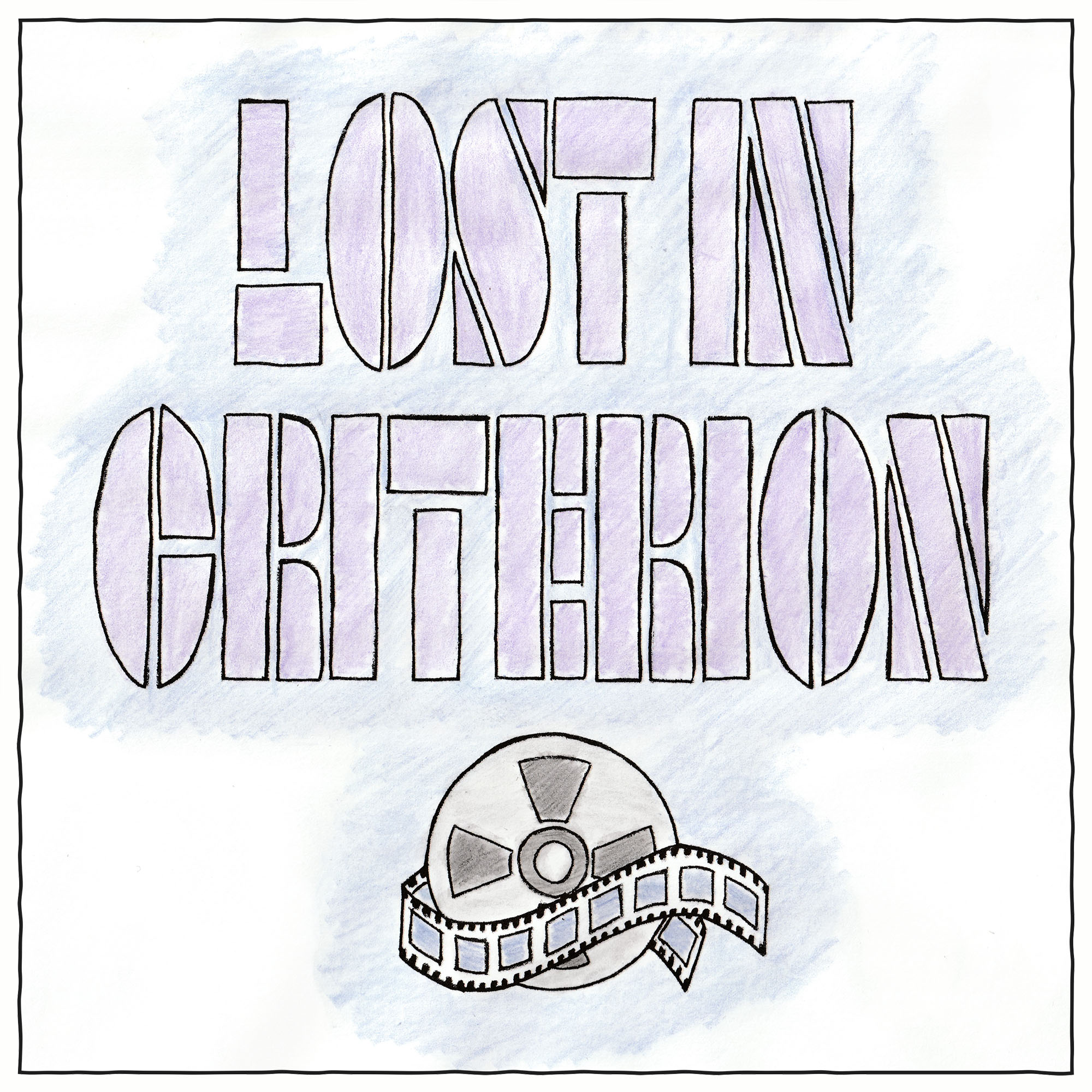Episodes

Friday Oct 04, 2019
Spine 370: Paul Robeson - Icon
Friday Oct 04, 2019
Friday Oct 04, 2019
We have another boxset for October, but a marked change from our September Monsters and Madmen set. Paul Robeson: Portraits of the Artist is an exploration of singer, actor, and activist Paul Robeson’s career from his start in the 20’s to his essential house arrest in the early 50’s when the US Government revoked his passport and refused to let him leave the country over his politics.
Criterion delivers the films to us in themed pairs on each Spine number, so we’ll be dealing with them in that division. First up is Paul Robeson: Icon containing Dudley Murphy’s 1933 adaptation of Eugene O’Neill’s play The Emperor Jones, which Robeson had been starring in on stage since 1925, and Saul J. Turell’s 1979 retrospective documentary Paul Robeson: Tribute to an Artist.

Friday Sep 27, 2019
Spine 368: Monsters and Madmen: Corridors of Blood
Friday Sep 27, 2019
Friday Sep 27, 2019
The fact that Boris Karloff and Christopher Lee are in Corridors for Blood may be the best thing about it, but also while Corridors of Blood fails at almost everything it thinks its doing as a horror movie or documentary about the creation of anesthesia — both of which are what the creators were trying to do —. it still succeeds in being the most ridiculous movie we’ve watched on the main podcast in years. Sure we’ve watched some weirder stuff on the Patreon Bonus episodes, but even in a boxset of the notoriously silly genre of late 50’s Sci-Fi/Horror, Corridors stands out as silly and last week’s movie had a amnesiac murderer and a bar called The Judas Hole.

Friday Sep 20, 2019
Spine 367: Monsters and Madmen: The Haunted Strangler
Friday Sep 20, 2019
Friday Sep 20, 2019
Robert Day’s The Haunted Strangler kicks off a pair of British period horror films starring Boris Karloff. Neither are all that great, but this one particularly so after some executive meddling that replaced a supernatural horror plot point with improbable amnesia. Great.

Friday Sep 13, 2019
Spine 366: Monsters and Madmen: The Atomic Submarine
Friday Sep 13, 2019
Friday Sep 13, 2019
The only entry into the Monsters and Madmen boxset that isn’t directed by Robert Day, Spencer Gordon Bennet’s The Atomic Sub imagines a world where submarines provide intercontinental shipping and passenger service under the arctic, at least until those subs start mysteriously disappearing. Come for the alternative future! Stay for the special effects! Leave before the sworn pacifist realizes war is good!

Friday Sep 06, 2019
Spine 365: Monsters and Madmen: First Man in Space
Friday Sep 06, 2019
Friday Sep 06, 2019
We kick off a boxset of late 50’s scifi/horror this week with The First Man into Space. Monsters and Madmen is dedicated to films produced by Richard and Alex Gordon, who also produced Fiend Without a Face which we watched five years ago. Things kick off here with Robert Day’s First Man into Space, the tale of an American test pilot who decides to jet into outer space and things do not go well on his return. Very spoopy!

Friday Aug 30, 2019
Spine 363: Mouchette
Friday Aug 30, 2019
Friday Aug 30, 2019
Robert Bresson followed up au hasard Balthazar with an similar film, but this time focusing on a young woman instead of a donkey. Bresson calls the tale (and the writer’s other work — Diary of a Country Priest) “Catholic realism”, and like many applications of the terms Catholic and realism it is super depressing.

Friday Aug 23, 2019
Spine 362: Border Radio
Friday Aug 23, 2019
Friday Aug 23, 2019
Allison Anders, Dean Lent, and Kurt Voss spent years making Border Radio and it shows, though often in weaknesses and incoherencies. But perhaps it is less interesting for its plot and more so for its snapshot of life adjacent to the LA punk scene of the era.

Friday Aug 16, 2019
Spine 361: The Beales of Grey Gardens
Friday Aug 16, 2019
Friday Aug 16, 2019
After pretty much everyone involved with the first project was dead except Jerry and during a weird renaissance of attention to the Beales and Grey Gardens, Albert Maysles recut unused footage from the 1975 original Grey Gardens into a new film that feels even more explicitly exploitative. Great job.

Friday Aug 09, 2019
Spine 360: Symbiopsychotaxiplasm: Two Takes
Friday Aug 09, 2019
Friday Aug 09, 2019
William Greaves’ 1968 Symbiopsychotaxiplasm puts the experiment in experimental film. The documentary inside a documentary inside a third documentary, shot in public, essentially boils down to the director seeing how far he can push his cast and crew before they revolt — not violent push, but still an antagonistic one. It’s fascinating and absurd and wonderful. And I suppose it could be all fake.

Friday Aug 02, 2019
Spine 359: The Double Life of Veronique
Friday Aug 02, 2019
Friday Aug 02, 2019
Krzysztof Kieślowski’s exploration of self The Double Life of Veronique is a subtly surreal and beautiful film, yet much of our conversation is centered around coming to terms with the essays included in the Criterion release, particularly the one written by Slovenian philosopher Slavoj Žižek.

Friday Jul 26, 2019
Spine 358: Pandora's Box
Friday Jul 26, 2019
Friday Jul 26, 2019
We haven’t seen a lot of silent films in the Collection so far, and we have never seen a movie with a bigger left field ending than this particular film. GW Pabst’s Pandora’s Box has a lot of problems, and a just frankly amazing last 10 minutes. It’s absurd, and I love it.

Friday Jul 19, 2019
Spine 357: The Fallen Idol
Friday Jul 19, 2019
Friday Jul 19, 2019
Graham Greene called his thrillers “entertainments”, which sounds dismissive of his own work but really it was an accurate contrast to the more heavy Catholic novels he apparently preferred to write. Greene himself adapted two of his entertainments to film for director Carol Reed, one being The Third Man and the other (and first) being this week’s episode The Fallen Idol (1948) adapted from a short story called The Basement Room, a significantly worse name.

Friday Jul 12, 2019
Spine 356: Sweetie
Friday Jul 12, 2019
Friday Jul 12, 2019
Jane Campion’s Sweetie takes a fairly realistic look at mental illness in the real world. Though unlike Kerrigan’s film where the world ignores the main character until things get much worse, Sweetie’s protagonist is coddled by her loved ones…until things get much worse. Both are intense in their own ways, but Sweetie, true to its name, is a little easier to swallow. At least until the end.

Friday Jul 05, 2019
Spine 355: Hands Over the City
Friday Jul 05, 2019
Friday Jul 05, 2019
The story of a corrupt businessman seeking office to better enrich himself while actively endangering the lives of others, the political party that supports him because they’ll get rich, too, and the political system so intent on absolving itself that it lets him get away with it.
Happy Fourth of July, America.

Friday Jun 28, 2019
Spine 354: Clean, Shaven
Friday Jun 28, 2019
Friday Jun 28, 2019
Lodge Kerrigan’s Clean, Shaven is intense. It’s not entirely clear what exactly is happening within the film narrative and what is just the main characters auditory (and possibly visual) hallucinations. But one thing that is clear is that the public and the authorities do not know how to compassionately react to our main character. So quick point, however you feel about police as a group, it’s not their job to help people having psychological breakdowns, and don’t call the gun people when you need someone with different tools. In that regard see Scott Christopherson and Brad Barber’s documentary Peace Officer. It’s estimated that between a third and a half of people killed by police every year have a disability and that the majority of those are mental illness, autism, or developmental disabilities. You can save a life by finding an alternative to calling the police.

Friday Jun 21, 2019
Spine 353: Sólo con tu pareja
Friday Jun 21, 2019
Friday Jun 21, 2019
Alfonso Cuarón has made some really great movies, a few masterpieces, and at least one sex romp that may be a satire of an HIV awareness campaign for encouraging monogamy. Guess which one the Criterion Collection makes us watch this week? It’s the sex romp one. Ultimately the target seems more than a little misguided, but the movie’s still pretty good.

Friday Jun 14, 2019
Spine 352: Jigoku
Friday Jun 14, 2019
Friday Jun 14, 2019
The Japanese horror films from the 60s that the Collection has served us have been nothing if not interesting. Stylistically, though, Nobuo Nakagawa’s Jigoku (1960) blows everything else out of the water. Certainly Kwaidan is a great film, but Jigoku blows it out of the water with an acid trip through Buddhist hell. Unfortunately, the rest of the film serves to just get us to hell as quickly as possible, so what we end up with is a sort of negative Universalism, where no one is good enough to escape the Bad Place, so theologically and philosophically the film leaves a lot to be desired. But it’s still a trip.

Friday Jun 07, 2019
Spine 351: The Spirit of the Beehive
Friday Jun 07, 2019
Friday Jun 07, 2019
This week we spend too much time talking about Franco to lay a floor for discussing The Spirit of the Beehive as a political film. Of course, even without that context it’s a masterpiece of a movie, visually stunning and stylistically perfect. Also it has Frankenstein.
How did we make it through this episode without making a Francostein joke? The world will never know.

Friday May 31, 2019
Spine 350: Seduced and Abandoned
Friday May 31, 2019
Friday May 31, 2019
Over a year ago we watched Divorce Italian Style and decided that there was ample evidence that film was an attack on Fellini, instead of the attack on Sicilian culture Germi maybe thought it was. This week it’s harder to ignore that Germi is decidedly punching down as he heaps a national issue onto a certain region. Still it’s a funny movie, so there’s that.

Friday May 24, 2019
Spine 349: Kicking and Screaming
Friday May 24, 2019
Friday May 24, 2019
We last heard from Noah Baumbach as the cowriter of Wes Anderson’s The Life Aquatic with Steve Zissou. One of our many guests on that 300th episode, Ben Jones-White, insisted that when we got around to doing Baumbach’s own feature debut he should join us, and nearly a year later we make good on that offer. Kicking and Screaming shares a lot of DNA with movies we love in and out of the Collection. It’s also the story of people a lot like I was in college. I hate them.
Our guest Ben also works with WikiTongues, an organization dedicated to documenting and saving languages all over the world. If you have the resources please support their work.

Friday May 17, 2019
Spine 348: Six Moral Tales: Love in the Afternoon
Friday May 17, 2019
Friday May 17, 2019
Near the top of this week’s episode Adam once again goes on a short rant about the Criterion Collection’s naming conventions as if there is a logic to any of it. There isn’t.
With slight distance I think the boys would be more apt to agree that all of the moral tales of are critiques of various aspects of what we would now call toxic masculinity. In it, though, even with this last episode, we get bogged down wondering if that reading is more our wish than Rohmer’s design. But finally finishing the series at least provides us with a floor to talk about them better individually.

Friday May 10, 2019
Spine 347: Six Moral Tales: Claire's Knee
Friday May 10, 2019
Friday May 10, 2019
This outing I think Eric Rohmer may have been trying to make a parody of Lolita by introducing a woman with a predilection for underaged men who convinces her male friend to try to seduce a couple underaged young women, but like as a goof. He gets a little too involved.

Friday May 03, 2019
Spine 346: Six Moral Tales: La Collectionneuse
Friday May 03, 2019
Friday May 03, 2019
I like to believe we’ve reached the point in Six Moral Tales where it becomes clear that the Rohmer himself is condemning the behavior of the men in his movies, considering the men in this week’s film are nearly completely irredeemable. But in an interview accompanying the film Rohmer says that he understands the audience not liking the men, but then just laughs and moves on. Does he also hate this behavior? Or does he think this is normal manhood? Are those two mutually exclusive anyway?

Friday Apr 26, 2019
Spine 345: Six Moral Tales: My Night at Maud's
Friday Apr 26, 2019
Friday Apr 26, 2019
In the third Moral Tale we finally meet a fully rounded female character, so round in fact that she gets a name in the title! We also get to finally deal with moral philosophy that while we don’t agree with at least gives us something to talk about in the form of Counter-Reformation Catholicism’s mirror of Calvinism and a discussion of game theory-based Christian belief. Also both of these coming up suggests that mid-century France was significantly more obsessed with certain 17th century theologians and mathematicians than Pat and I find believable, but they may reflect Eric Rohmer a bit more, and that itself makes this movie more interesting. In any case, this one is nothing like “watching paint dry”.

Friday Apr 19, 2019
Spine 344: Six Moral Tales: Suzanne's Career
Friday Apr 19, 2019
Friday Apr 19, 2019
In our second Moral Tale we find another jerk being mean to another woman, but this one has a bit more substance perhaps. It still doesn’t really work for us, but hey whatever. The Criterion releases for each Moral Tale just full of material and Suzanne’s Career also brings us an opportunity to watch and discuss Nadja in Paris (1964), a short clearly meant to encourage American high schoolers to study abroad. Star Nadja Tesich is a delight, and the film is the first collaboration between Rohmer and cinematographer Néstor Almendros who will bring a certain watchability to the rest of the Moral Tales.

